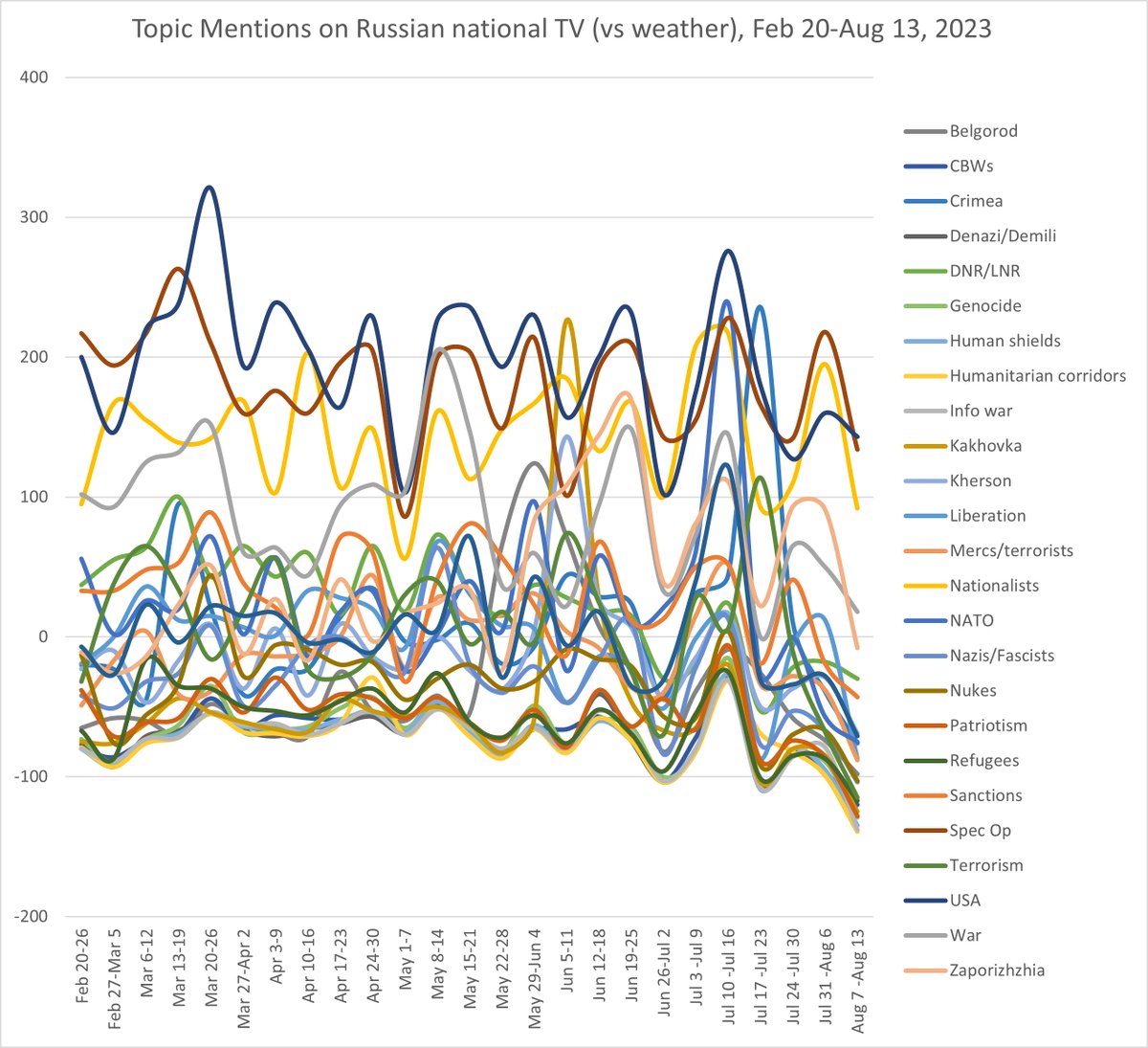
Tracking Russia's domestic war narratives and disinformation. Principle Investigator @jpaulgoode, based at @EURUSCarletonU. Funded by @SSHRC_CRSH.
How to get URL link on X (Twitter) App


 2/9 For new followers: this project tracks topic mentions on Russian TV using transcripts from Integrum. Reported values reflect the number of mentions relative to mentions of the weather as a measure of whether viewers are likely to notice.
2/9 For new followers: this project tracks topic mentions on Russian TV using transcripts from Integrum. Reported values reflect the number of mentions relative to mentions of the weather as a measure of whether viewers are likely to notice. 
https://twitter.com/RuMOR_CarletonU/status/1666925709992796160First, the attack was attributed to Ukraine from the start. The first couple of days it was chalked up to heavy artillery, supported by the claim that Ukraine regularly shelled the dam. Reports also suggested that US-supplied HIMARS were used to shell the dam.




 To make things a little less chaotic, we re-calculate mentions on TV relative to mentions of the weather. This provides an intuitive measure of a topic's salience: if something is mentioned more often than the weather, it's more likely to be noticed (and vice versa). 2/8
To make things a little less chaotic, we re-calculate mentions on TV relative to mentions of the weather. This provides an intuitive measure of a topic's salience: if something is mentioned more often than the weather, it's more likely to be noticed (and vice versa). 2/8

 There is an indirect media effect known as priming, and it refers to the ways that ideas broadcast in the media are made more accessible. When people think about other things, they over-sample the things that were primed because they are already "there."
There is an indirect media effect known as priming, and it refers to the ways that ideas broadcast in the media are made more accessible. When people think about other things, they over-sample the things that were primed because they are already "there." 
https://twitter.com/RuMOR_CarletonU/status/1585457486999453698At the start of the war, only 3 narratives rated daily mentions on regional media: Donbas, sanctions, and refugees.


 Here we can see more clearly that only the US, NATO, nationalists, and sanctions are mentioned more often than the weather, meaning Russians are more likely to notice in daily life.
Here we can see more clearly that only the US, NATO, nationalists, and sanctions are mentioned more often than the weather, meaning Russians are more likely to notice in daily life. 